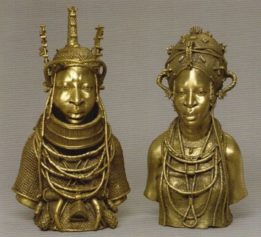History teachers are in a tizzy over changes to widely taught Advanced Placement course they say threatens to erase the history of African, Asian and American civilizations before the arrival of European colonizers.
Leaders of the College Board, the non-profit that administers AP courses, were confronted by angry teachers at an open forum in Salt Lake City, Utah on Monday, who protested plans to remove these civilizations from the school curricula, according to POLITICO. Footage of the tense exchange between teachers and College Board VP Tom Packer has since gone viral, picking up thousands of views online.
“I’ve been teaching AP for a decade and I’ve never seen a hornet’s nest stirred up like this,” Tom Richey, who teaches an AP European History class in Seneca, S.C., told the news site.
The board’s recent change to the course would essentially start the learning material at 1450 — the exact year Europeans rose to power and began colonizing parts of the world. All course material discussing pre-colonial histories of Africa, Asia, the Americas and the Middle East would be effectively axed and relegated to a “pre-AP” course instead.
The controversial plan was announced by the Board this Spring and is scheduled to take effect in the 2018-2019 school year, POLITICO reported.
Teachers strongly opposed to the changes argued that the new post-1450 course will strip students of “a broad global understanding of history,” giving them a Euro-centric worldview instead. Students and teachers of color have it hard enough already trying to find their histories properly represented in school texts, others argued.
“You cannot tell my Black and Brown students that their history is not going to be tested and then assume that isn’t going to matter,” California educator Amanda DoAmaral told Packer during the forum. “The people in power in our country already are telling those same students that their history, present and future doesn’t matter.”
Millions of students across the country take rigorous AP courses in dozens of subjects in hopes of earning college credit by passing an end-of-year exam. The pre-AP course won’t be tested, however.
Dylann Black, a high school freshman in New Jersey who launched a petition against the board’s changes, said students would also be less inclined to take the course since they can’t earn college credit for it. Teachers also argued the course likely won’t be taught by cash-strapped schools since the Board charges a fee for it.
In a statement, the College Board said it made the controversial changes in an effort to make the course material more manageable.
“… These changes will help give students more time during the school year to develop understanding through sustained focus on key concepts and practice of essential skills,” the statement read. The current AP World History course and exam cover 10,000 years of history across all seven continents. No other AP course requires such an expanse of content to be covered over a single school year.
“AP World History teachers have told us over the years that the scope of content is simply too broad, and that they often need to sacrifice depth to cover it all in a single year,” it continued.
Students and teachers beg to differ.
“Students need to understand that there was a beautiful, vast and engaging world before Europeans ‘discovered’ it,” Michigan educator Tyler George, who teaches AP World History told POLITICO. “Students need guidance and knowledge of the past to understand that when they hear ‘Africa’ they shouldn’t immediately think ‘slavery.'”
Oakland high school student Noah Mitchell noted to Politico argued the changes would essentially “cut down on so many people’s histories.”
“Really, the message that this would be sending is that their histories don’t really matter,” he told the news site


